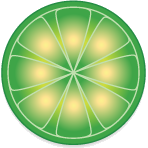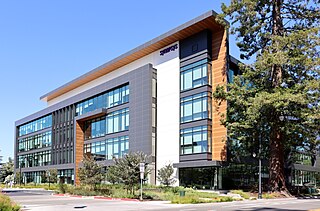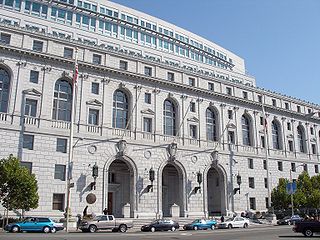
LimeWire was a free peer-to-peer file sharing client for Windows, macOS, Linux, and Solaris. Created by Mark Gorton in 2000, it was most prominently a tool used for the download and distribution of pirated materials, particularly pirated music. In 2007, LimeWire was estimated to be installed on over one-third of all computers globally.

Trade secrets or confidential commercial information are a type of intellectual property (IP) that includes formulas, practices, processes, designs, instruments, patterns, or compilations of information that have inherent economic value because they are not generally known or readily ascertainable by others, and which their owner takes reasonable measures to keep secret. Intellectual property law gives the owner of a trade secret the right to restrict others from disclosing it.

Theft is the act of taking another person's property or services without that person's permission or consent with the intent to deprive the rightful owner of it. The word theft is also used as a synonym or informal shorthand term for some crimes against property, such as larceny, robbery, embezzlement, extortion, blackmail, or receiving stolen property. In some jurisdictions, theft is considered to be synonymous with larceny, while in others, theft is defined more narrowly. A person who engages in theft is known as a thief.

Identity theft, identity piracy or identity infringement occurs when someone uses another's personal identifying information, like their name, identifying number, or credit card number, without their permission, to commit fraud or other crimes. The term identity theft was coined in 1964. Since that time, the definition of identity theft has been legally defined throughout both the U.K. and the U.S. as the theft of personally identifiable information. Identity theft deliberately uses someone else's identity as a method to gain financial advantages or obtain credit and other benefits. The person whose identity has been stolen may suffer adverse consequences, especially if they are falsely held responsible for the perpetrator's actions. Personally identifiable information generally includes a person's name, date of birth, social security number, driver's license number, bank account or credit card numbers, PINs, electronic signatures, fingerprints, passwords, or any other information that can be used to access a person's financial resources.

Synopsys, Inc. is an American electronic design automation (EDA) company headquartered in Sunnyvale, California, that focuses on silicon design and verification, silicon intellectual property and software security and quality. Synopsys supplies tools and services to the semiconductor design and manufacturing industry. Products include tools for logic synthesis and physical design of integrated circuits, simulators for development, and debugging environments that assist in the design of the logic for chips and computer systems. As of 2023, the company is a component of both the Nasdaq-100 and S&P 500 indices.

Magma Design Automation was a software company in the electronic design automation (EDA) industry. The company was founded in 1997 and maintained headquarters in San Jose, California, with facilities throughout North America, Europe and Asia. Magma software products were used in major elements of integrated circuit design, including: synthesis, placement, routing, power management, circuit simulation, verification and analog/mixed-signal design.

The Economic Espionage Act of 1996 was a 6 title Act of Congress dealing with a wide range of issues, including not only industrial espionage, but the insanity defense, matters regarding the Boys & Girls Clubs of America, requirements for presentence investigation reports, and the United States Sentencing Commission reports regarding encryption or scrambling technology, and other technical and minor amendments.

Possession of stolen goods is a crime in which an individual has bought, been given, or acquired stolen goods.

Cadence Design Systems, Inc. is an American multinational technology and computational software company. Headquartered in San Jose, California, Cadence was formed in 1988 through the merger of SDA Systems and ECAD. Initially specialized in electronic design automation (EDA) software for the semiconductor industry, currently the company makes software and hardware for designing products such as integrated circuits, systems on chips (SoCs), printed circuit boards, and pharmaceutical drugs, also licensing intellectual property for the electronics, aerospace, defense and automotive industries, among others.

Copyright infringement is the use of works protected by copyright without permission for a usage where such permission is required, thereby infringing certain exclusive rights granted to the copyright holder, such as the right to reproduce, distribute, display or perform the protected work, or to produce derivative works. The copyright holder is usually the work's creator, or a publisher or other business to whom copyright has been assigned. Copyright holders routinely invoke legal and technological measures to prevent and penalize copyright infringement.
Denizen Hotels is a former proposed hotel chain brand of Hilton Worldwide which never materialized following legal proceedings by a competitor.
Sergey Aleynikov is a former Goldman Sachs computer programmer. Between 2009 and 2016, he was prosecuted by NY Federal and State jurisdictions for the same conduct of allegedly copying proprietary computer source code from his employer, Goldman Sachs, before joining a competing firm. His first prosecution in federal court in New York ultimately resulted in acquittal by the United States Court of Appeals for the Second Circuit. The outcome of his second prosecution and trial in New York state court was a split verdict dismissed by court, which acquitted him on all counts. One count in that order of dismissal was later overturned by New York Court of Appeals, which took a very broad interpretation of the statute, and on recommendation of prosecutors he was sentenced to time served without punishment. The same New York Court of Appeals denied his petition to appeal on double jeopardy grounds. His story inspired Michael Lewis's bestseller Flash Boys.

Sega Enterprises Ltd. v. Accolade, Inc., 977 F.2d 1510, is a case in which the United States Court of Appeals for the Ninth Circuit applied American intellectual property law to the reverse engineering of computer software. Stemming from the publishing of several Sega Genesis games by video game publisher Accolade, which had disassembled Genesis software in order to publish games without being licensed by Sega, the case involved several overlapping issues, including the scope of copyright, permissible uses for trademarks, and the scope of the fair use doctrine for computer code.
This collection of lists of law topics collects the names of topics related to law. Everything related to law, even quite remotely, should be included on the alphabetical list, and on the appropriate topic lists. All links on topical lists should also appear in the main alphabetical listing. The process of creating lists is ongoing – these lists are neither complete nor up-to-date – if you see an article that should be listed but is not, please update the lists accordingly. You may also want to include Wikiproject Law talk page banners on the relevant pages.

Robbins v. Lower Merion School District is a federal class action lawsuit, brought during February 2010 on behalf of students of two high schools in Lower Merion Township, a suburb of Philadelphia. In October 2010, the school district agreed to pay $610,000 to settle the Robbins and parallel Hasan lawsuits against it.

Keker, Van Nest & Peters LLP is a litigation boutique located in San Francisco, California, founded in 1978. The firm's areas of practice include intellectual property, professional liability, class actions, wrongful termination defense, general contract and commercial litigation, antitrust, white collar crime, and appellate.

DuPont v. Kolon Industries is an intellectual property lawsuit centering on the allegation that Kolon Industries, a South Korea-based company, stole trade secrets concerning the production and marketing of Kevlar from DuPont, an American chemical company. Kevlar is a high strength synthetic fiber used in applications as diverse as bicycle tires and body armor. On September 14, 2011, a jury found in favour of DuPont and awarded damages of $919.9 million. A 2015 settlement reduced the damages to $275 million.

Silvaco Data Systems v. Intel Corp was a trade secrets case heard before the California Court of Appeal for the Sixth District. Silvaco sued Intel for misappropriation of trade secrets because Intel used software produced by a third-party that had misappropriated Silvaco's trade secrets. The appeals court affirmed the decision of the trial court to grant summary judgment in favor of Intel, finding that merely using infringing software does not constitute a trade secret infringement in itself.

United States v. Agrawal, 726 F.3d 235, was a case heard in the United States Court of Appeals for the Second Circuit involving theft of trade secrets and intellectual property. The court upheld the conviction of Samarth Agrawal, former quantitative analyst at Paris-based bank Société Générale S.A ("SocGen"), for stealing high-frequency trading code from SocGen and replicating proprietary software for New York-based hedge fund Tower Research Capital ("Tower").
Eastman Kodak v Harold Worden is a case of industrial espionage involving the sale of information by Harold Worden, a former Kodak manager, to Kodak's competitors in 1995. Worden was caught selling details on the 401 process, a process designed to increase the speed and quality of film during development, during a sting operation conducted by Kodak after two of their competitors, Konica and Agfa-Gevaert, told Kodak that he had approached them selling trade secrets. After the sting operation, Worden was sentenced to 15 months in prison and a fine of $30,000 for interstate transportation of stolen property.















